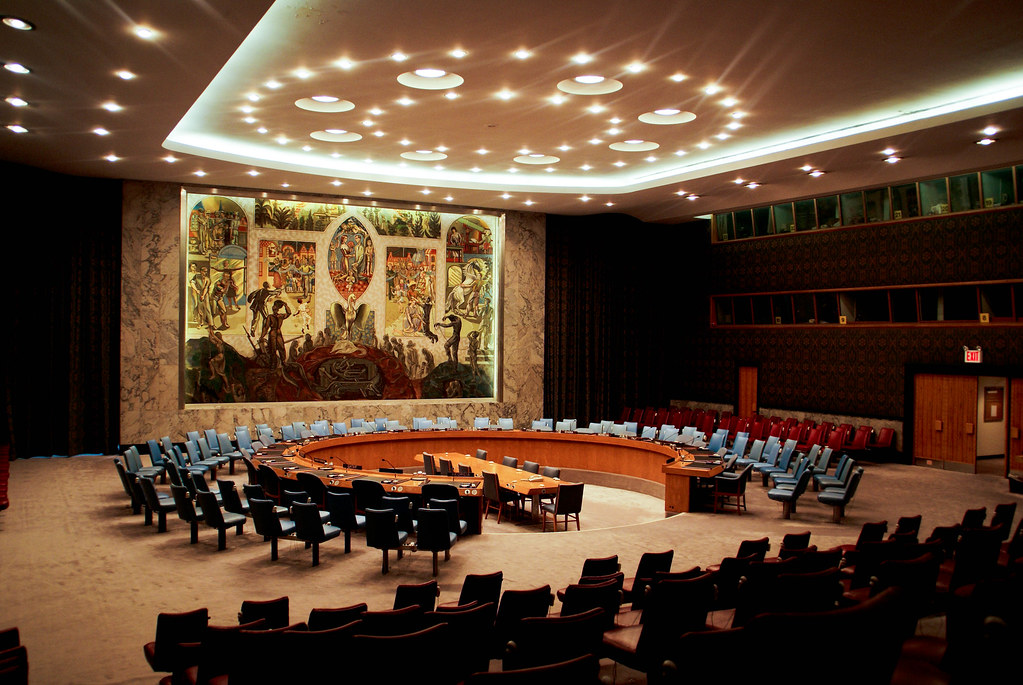FCPA Blog: Will the UN Security Council (finally) take up the fight against corruption?

This blog was originally published on the FCPA Blog, which was discontinued in February 2024.
Thankfully, the economist-led debates in the 1990s about whether corruption is the necessary grease in the wheels of business are long behind. But we would argue that many people, including those most affected by it and possibly even those that are in the anti-corruption business, still don’t fully grasp what corruption does to our world.
What’s wrong with a Head of State taking money from companies who want to win public contracts, especially if otherwise he or she seems to be running the country in an acceptable way? Hard to believe but I still get this question often. The answer seems obvious, but it seems the connection between corruption and lack of education or public healthcare is not an automatic one for many people. Thankfully, a few real-life examples usually suffice to demonstrate it.
Taking the obvious next step of acknowledging that corruption is a direct impediment to the enjoyment of human rights already takes more convincing. But in our view, it is crystal clear: States that fail to effectively prevent and punish corruption are in direct violation of their obligations under international human rights treaties.
Our security is protected by police, and terrorism is the business of radicals — or so we think. Yet Transparency International’s 2017 Global Corruption Barometer ranks the police as the most corrupt public institution. It is said that corrupt security services were the cause for a heavily delayed response to the Westgate shopping mall attack in Kenya in 2013. What that means is that people died as a direct result of corruption. Frustration about corruption pushes young people into associating with radical groups as these offer an opportunity to vent their anger. Terrorism flourishes where corruption is rife.
Why can criminal networks engaged in illegal trafficking in humans, arms and wildlife products operate so freely? Because they can bribe their way through customs and out of courts. And when they have laundered the proceeds of their crimes successfully through the international financial system, they can use these same monies to continue their criminal enterprises.
Finally, let us not forget that when money buys votes, when money buys influence, when money buys politicians, when the media is co-opted by corrupt networks, we lose our fundamental right to participate in the destiny of our countries and consequently of our lives. Institutions of democracy, when undermined by corruption, as they sadly are to varying degrees almost everywhere in the world today, become a farce. They end up protecting rotten systems behind a pretty face.
Is this reason enough to fight corruption? We certainly think so. The international community missed a critical opportunity when the Sustainable Development Goals (SDGs) failed to list anti-corruption as one of their 17 high-level principles. We firmly believe that corruption is the root cause of most if not all hurdles to development; and as long as corruption prevails, achieving the SDGs will remain elusive.
Maybe we have just seen this being corrected this week, which saw the first UN Security Council session on the relationship between corruption and conflict. Maybe we have just experienced the start of a new era for the fight against corruption, one that finally connects corruption to the reasons for which we need to eradicate corruption. To conflict and security, humanitarian crises, human rights, poverty and democracy. Many member states reported proudly about their efforts to eradicate corruption, and to hear this in the UN Security Council is an important first step. But we have heard similar statements many times in the past two decades in other important fora, and yet our global and domestic political and economic structures are possibly more undermined by corruption today than before the signing of the UN Convention against Corruption.
If elevating this topic to the UN Security Council should have any impact, we need to keep the pressure on and hold member states to account for what they promise in these high-level debates. And we, as anti-corruption practitioners, must be better at breaking thought barriers between our community and that of related areas, so that anti-corruption action is not happening in a silo but connected to where its impact may not be easily visible but where it does the greatest damage to our world.


